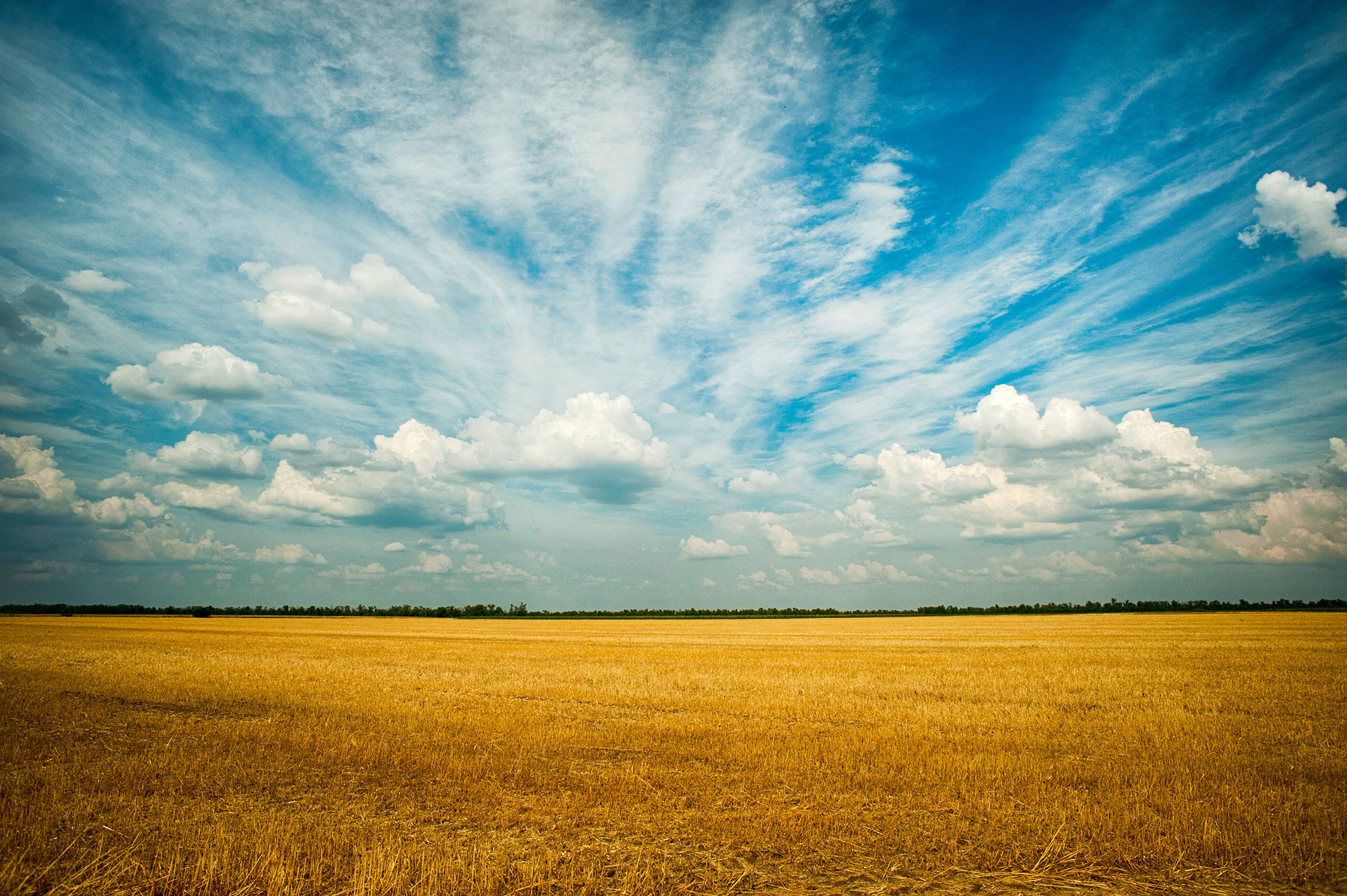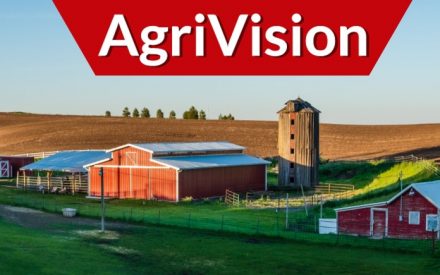Host Katie Wantoch and Bill Halfman, Professor and Extension Agriculture agent in Monroe County, discuss an alternative to renting more farmland – buying high quality forages from their neighbor.
View Transcript
Katie Wantoch
Hi. This is UW Extension’s Farm Management AgriVision Podcast. I am Katie Wantoch, Agriculture Agent with UW-Madison Division of Extension. I will be chatting with fellow Extension educators as we answer questions from farmers and share our knowledge and expertise on how you can improve your farm management skills. Today I’m joined by Bill Halfman, Professor and Extension Agriculture Agent in Monroe County. Welcome Bill to the podcast.
Bill Halfman
Thank you, Katie for having me join you.
Katie Wantoch
Bill, our question today is from a farmer and his son who milked 250 cows and farm 275 acres in East Central Wisconsin. They added a few cows this year, and we’re hoping to rent 75 to 100 acres of more land. There’s a lot of competition in their area though. They had talked to a neighbor who feeds out beef cattle, and raises corn, silage and haylage. He sells extra forage to area farmers. The farmer notes that it may seem like what he’s asking for silage and haylage per ton is more reasonable than renting additional land. They don’t have to buy more equipment, hire more labor, and the feed is high quality. Fortunately, this farmer and his son have extra feed from last year. But they need to decide what to do for this year. Bill, do you have any advice for this farmer and his son about buying forages?
Bill Halfman
Well, I think that their thoughts about buying more forages rather than going out and maybe getting stiff competition makes a lot of sense. So the best thing, they can do is work it out on a piece of paper and a pencil to compare the cost of the two. And certainly there can be some opportunities maybe there with the individual that they have identified who does have some additional feed that they normally sell. That there may be an opportunity to work with them, and maybe trade some maure towards the cost of that feed. If they’ve got, it sounds like they’ve added some additional cows, maybe they can use all the manure that those additional cows will generate on their own acres. But if they can’t, there certainly could be a possibility to work out an agreement to trade some of that manure or the nutrient value for, towards some of that feed. That could be a win win situation for both to kind of help, it may take a little more economically feasible, especially if the acres are nearby. And you don’t have a lot of expenses hauling. Some of the tricky parts to that, of course is if you’re purchasing feed, you want to know the quality, that you’re purchasing. That it’s going to fit well in your operation, the price that you paid for, it should be reflective on the quality, that can become a sticking point. The person that’s harvesting the feed may have every intention and strive to do the best they can to hit those targets that you’re looking for. But Mother Nature can upset the applecart on us and cause some problems there. So you know, those kinds of things should be addressed in some of these decisions, whether it’s a contract where you’re buying from them, or whether you’re just buying and you will find whatever you need to find from wherever to make sure you get that. Because if you end up paying a higher price for feed and it came in quite a bit less book or lower quality they are expecting and planning on, that’s going to add additional cost to the purchase sheet to balance those rations. So that’s important to keep in mind too. But you know, a lot of cases where land rent is, is getting very high in competition and things like that. Definitely looking at purchasing something rather than waiting for more acres is definitely a good viable idea. They had already identified that if they go that route, won’t be looking for extra labor, their current machinery will still be just fine on the acres that they do farm. So they’re, you know, there’s a lot of positives there.
Katie Wantoch
Right, and you mentioned a contract with the, with this neighbor, you know, if they’re going to be buying feed. And I always encourage people to have things in writing so that both parties are understand what each is bringing to the table. But you definitely want to make sure as you mentioned, this person knows the quality that the farmer and his son want, especially because they’re raising milk cows, right?
Bill Halfman
Right. It does kind of help a little bit that the person but they’re considering doing this with is feeding cattle. Depending on the beef cattle that are feeding, quality expectations or the quality may actually be less. I know some arrangements with some farmers that I had worked with in the past sharing of some big harvest, self-propelled choppers, dump trucks, and things like that. And a couple of the farmers were dairy farmers and other ones were beef and replacement heifer. The beef and the replacement heifer raiser folks, they did not need the same quality as the dairy folks. So that the built in some ease and some flexibility that the dairy guys, they were going to be cutting hay first because they are striving for that high quality dairy forage. And the beef and replacement heifer raisers weren’t worried at all, because mostly what were they looking for a lower quality that matched up with animals. So it was it worked out really well for both parties, just by the nature of the feed that they were looking for, kind of help with that whole timing of harvesting. So that can help a lot, it may be a little different, when there’s a whole bunch of people that are wanting the same quality level, trying to all jam it in a short time and you just can’t get over, you’re only gonna be able to get over so many acres at a time. But then we throw in some weather events, and then we get into problems and develop issues with the agreement and whether is it truly fair for everybody. So those are some important things to keep in mind here to match up those dates with the other folks.
Katie Wantoch
The pricing too, of making sure that they pencil out what was rent going to be as compared to what cost for feed, shrinkage, you know, any type of loss or something like that, or loss in quality.
Bill Halfman
The biggest part about it is if they’re buying feed of a certain quality, potentially, and the grading that they have, and you don’t even get that guarantee with your own. You know, you get the wrong weather conditions at the wrong time. But we want to be cutting hay when it’s ready to cut, we get five days of wet. We know that that forage quality changes really fast at those critical times. We’re looking at first cutting, now we’re looking at somewhere around 40% of our years worth of feed is not the level that we wanted it to. Even though we still have the same amount of expenses. Purchasing isn’t always bad, there are some definite pros to it. You give up some control depending on how the contract is set up to figure out ways to work out or have a out clause if weather it is just such. Maybe they would want to buy the lower quality but have some kind of mechanism to adjust the price based on the quality so there has to be a reasonably equitable deal for both parties to make the work.
Katie Wantoch
Well great. Well thanks Bill for joining us today and providing that advice for this farmer and his son about buying forages.
Bill Halfman
You’re welcome.
Katie Wantoch
For more Extension Agrivision podcasts or resources to improve your farm management skills, check out farms.extension.wisc.edu. Thanks for listening.
Related Resources
Information in this article was originally published as part of the Agrivision column in Wisconsin Agriculturist.



 AgriVision Episode 33 - Breeding to beef bull semen on bottom half of dairy herd
AgriVision Episode 33 - Breeding to beef bull semen on bottom half of dairy herd